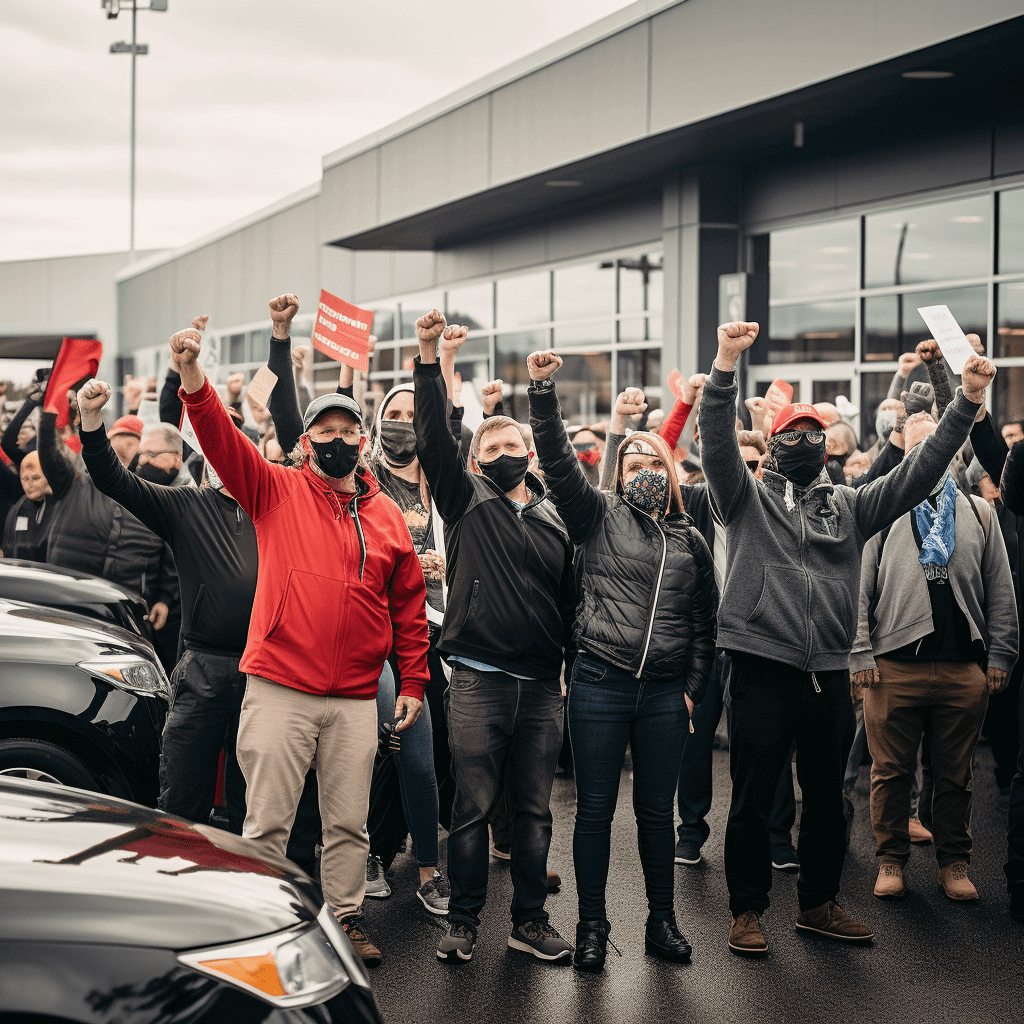Employees at three major US automakers (GM, Ford and Stellantis) are poised to strike as labor contract negotiations reach an impasse. The possible strike, which is expected to start on Friday, could lead to higher car prices and major disruptions to the industry.
The Union Auto Workers (UAW) said the automakers’ recent proposals fell short of their expectations, especially in light of inflation and declining wages over the decades. Shawn Fain, president of the UAW, noted that companies have shown flexibility but have not yet agreed to significant wage increases. The union’s demands include a 40 percent pay rise over four years for its 140,000 members, a four-day work week, automatic wage increases tied to inflation and stricter definitions of “temporary” employees.
Starting negotiations without the traditional symbolic handshake, the UAW has made its position clear from the start. Last month, an overwhelming 97% of trade unionists voted in favor of a strike.
As negotiations continue, the companies have improved their offers. According to Fain, Ford proposed a 20 percent wage increase over the life of the contract, while GM and Stellantis pitched for 18 percent and 17.5 percent, respectively.
Employees argue that these auto giants can afford to be more generous, given their record profit streak in recent years. Paul Raczka, a Stellantis factory worker, highlighted the disparity between workers’ wages and the growing incomes of company CEOs, highlighting the challenge workers face in meeting basic needs.
As companies transition to electric vehicle production amid falling sales, a 10-day walkout could cost automakers nearly $1 billion in losses and nearly $900 million in lost wages of workers, predicts the Anderson Economic Group.
Despite the escalation of tensions, the companies underline their commitment to the negotiations. Jim Farley, CEO of Ford, emphasized the need to preserve the sustainability of the company.
As labor disputes intensify in the United States, the possible strike underscores a broader movement where workers are demanding better wages in a tight labor market influenced by rising costs.
While the impact of a potential strike is debated, one thing is certain: consumers may face higher car prices due to reduced supply resulting from the pandemic and labor unrest.
This article is sourced from and written by AI.
Track and stay informed about AI-generated news:

